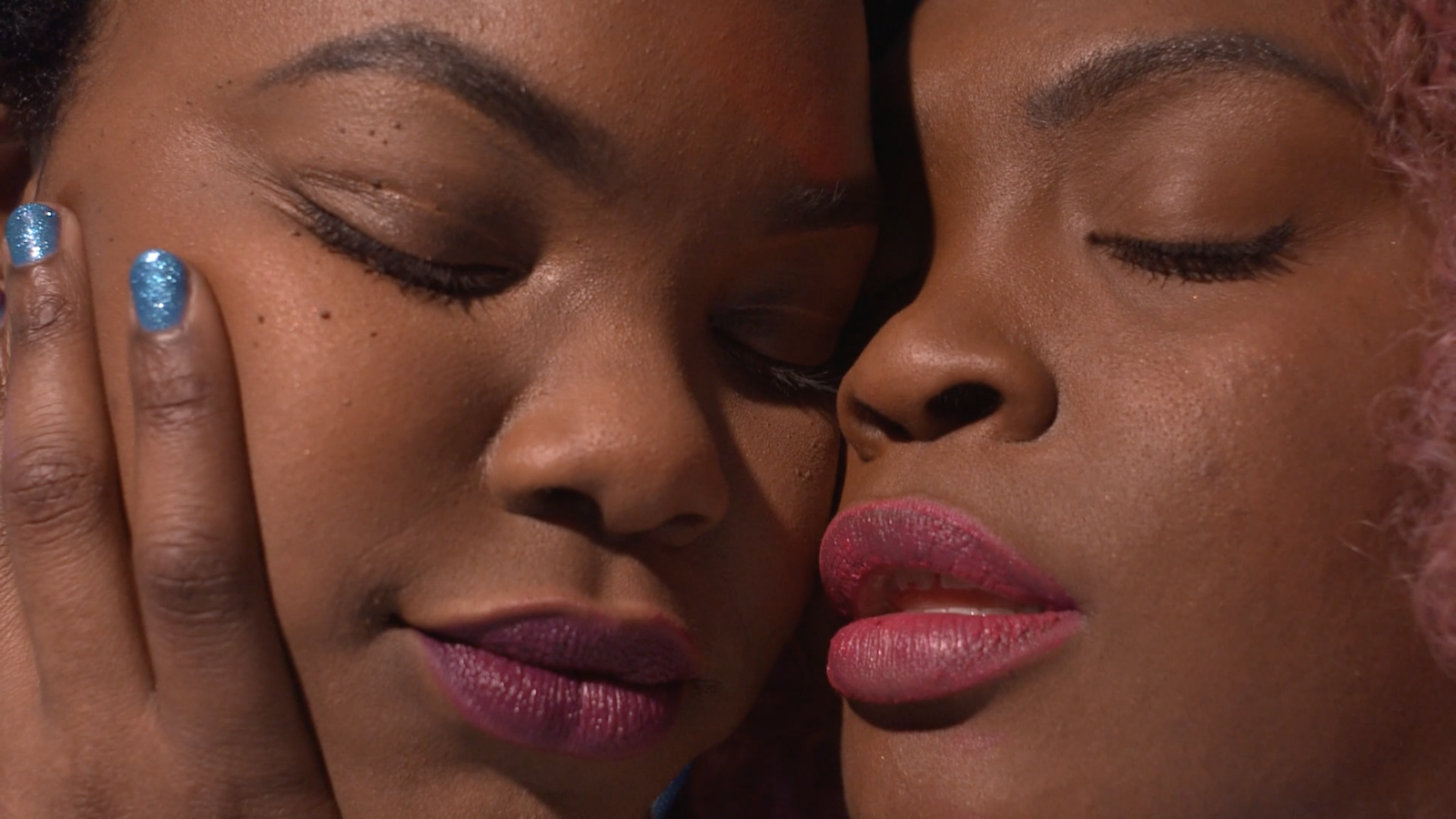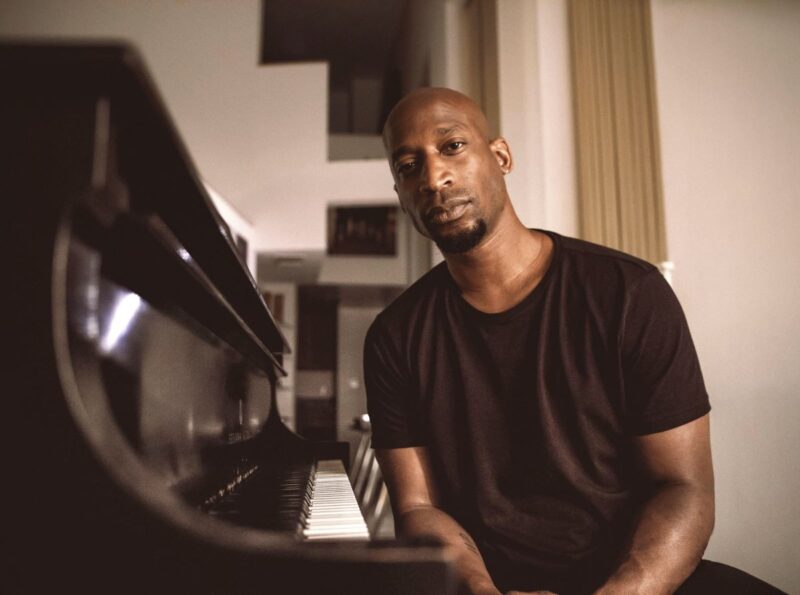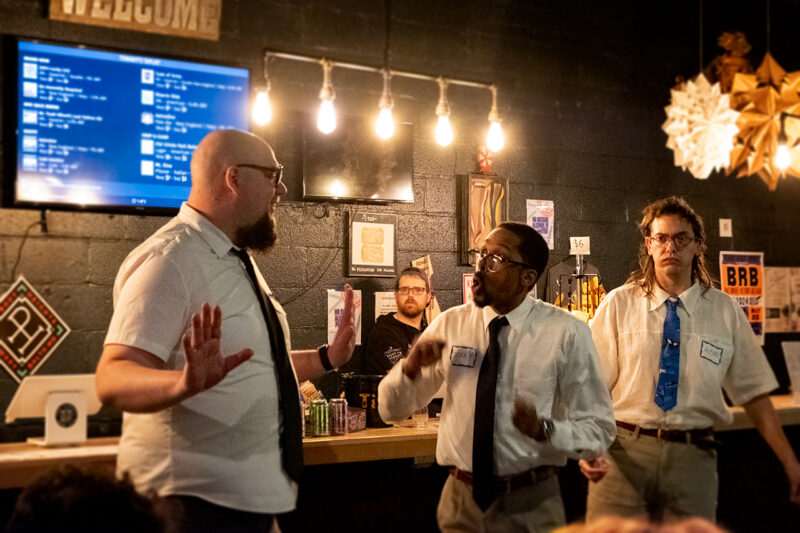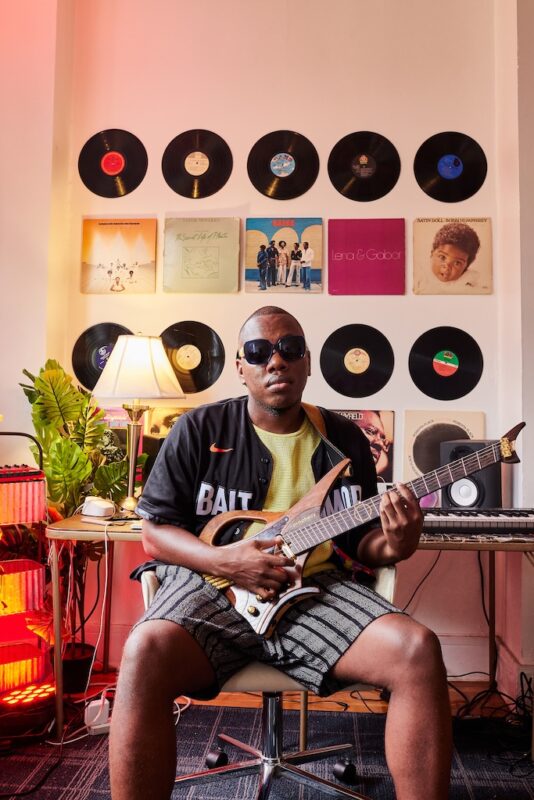Running for the MARC train to Penn Station felt like trying out for track. It was amazing how this assignment to write about Nia Hampton’s Black Femme Supremacy Film Fest came along with my rediscovered interest in watching and critiquing cinema. In terms of heterosexual love stories, sometimes I wish I could ask any given popular film writer (say Spike Lee) something challenging and inconvenient like, “What kind of plot twists could talk about how real women exist separately from a man’s desire?” And I’d hope that man would take me and any woman in his acquaintance seriously when thinking of an answer. But in the meantime, I’m forced to contend with the probability that he would usually think first about what could go in my mouth than whatever comes out of it.
So, I arrived at the Black Femme Supremacy Film Fest without the slightest expectation that any men would actually be there. I was wrong, though—I saw exactly two cis men in a theatre audience of about 70. I was just in time to see the Defining Femme category, one of seven themed short-film programs featured at the festival. (Others included Access to Power, Access to Guidance, Access to Love, Access to Genre, Defining Black, and Home Grown Talent). There were beautiful ladies of all colors in the Parkway Theatre’s screening room, Black being the most fashionable.
 Femme Sparks
Femme Sparks
Some of the films passed the Bechdel test—I couldn’t get the hypnotic sound of Peach Pit Productions’ Femme Sparks music video out of my head, with Briq House’s spotted hips spreading soft against her lover’s face (Jessica Rycheal). Director Sierra McKenzie shot this video with her partner Kate Starling, billing the music video as an “[a]ll queer, all female, all femme production,” rolling the audience in the pulsing beats as we watched the couple’s sticky red lips part and come together, vibing cheek to cheek. I felt their love waft off of the screen, then also had to contend with my feelings about myself and my lack of fulfilling experiences, and whether they can make me somehow less of a woman, let alone a desired femme.
In Ayha Simone’s Femme Queen Chronicles, the lead character Chanel (also played by Simone) is facing a birthday along with an eviction notice and a termination letter from her job. She goes out to party with her close friends, all fluffy and bright Sesame Street colors to combat the dark mood of her day. One friend (Paige Chanel) really goes through it getting Chanel’s custom-made cake. The bakery scene brilliantly sets up a tension between two types of femmes—cis vs. trans woman. The cisgender baker spells Chanel’s name wrong on the cake, won’t correct it, and tries to overcharge Paige by about 100 dollars—and she does it all with a smile. The baker’s refusal to accommodate Paige’s simple requests serve as a microaggression from a more privileged person against someone with limited means to fight back (however, Paige fought back in the best way possible—no spoilers).
Another film, Doll Baby, rebels against the patriarchal social coding of little girls who are given dolls to play with, alluding to how this imprints them to be homemakers. Filmmaker Britt Sankofa does this pseudo voodoo ritual with her Barbie dolls, stripping them of their feminine markers of makeup and flowing hair, and making them wear white sackcloths of both purity and subjugation. And after all this, another scene features a guy showing the audience how to unfold a stroller, as if to contrast the doll rituals against the expectation that men wouldn’t deign to concern themselves with anything like that in normal circumstances. The film won the audience favorite survey for the Experimental Short category.
 The Call (Angel Hobbs, 2019)
The Call (Angel Hobbs, 2019)
The film that hit me hardest concerned mass incarceration. In the segment Access To Genre, Angel Hobbs’ The Call stars Ebonee Davis, all alone in her bedroom when her cell phone starts to ring. It is a collect call from her brother in prison, and I could feel the emotional energy of her trying to connect with him any way she could. It reminded me of my own experiences a decade ago when I sent my incarcerated cousin some Japanese magazines from when I was living and working abroad. The censors at his prison returned them after a month, marking them in red as “contraband.” I felt the character’s frustration, her inability to truly show how much she cared for and thought about him; it demonstrated how the ties that bind us to our loved ones are usually held by a higher, disinterested power. On one hand, she could just choose to forget about her brother and focus on the few good men that are still free and uncompromised—but is there really such a thing as freedom after the devastation of Black communities wreaked by the War on Drugs? The film ends on a similarly ambiguous note, with her holding on to the phone as a means of supporting her brother through the worst time of his life.
The Defining Femme panel probed the fluctuating meanings of the word “femme,” with comments that went from self-determination to outright rebellion. Baltimore artist Jamie Grace of Jamie Fulla Grace (Emily Eaglin, 2019) pointed out that, “As space makers, we have the opportunity to shape what that word means for us.”
Another filmmaker, Nia Barge, mentioned how her interview series, Finding Nia, tied in with discovering the real meaning of her Swahili first name. Barge’s actions for the project—finding different women and asking them about their own life’s work—helped her to better understand the meaning of purpose for herself. “Women—femmes—exist in such a complex reality,” Barge elaborated, noting that Precious Layne, one of her interview subjects, is a teacher and a DJ, while also working on her Master’s degree. “It’s hard to imagine what [femme] looks like without the male gaze,” Sankofa added, “and what it means without the backdrop of patriarchy.”
 From the Defining Femme panel
From the Defining Femme panel
Throughout the festival, the tension between femme identities and the masculine consumption of them served as a foil to the festival’s message of feminine autonomy. Sex work made a brief appearance in Simone’s Chronicles when one of Chanel’s friends gave her a dildo and sang, “Rent is duuueee” because she lost her steady job; in another short by Adrianna Cherelle, Sugar Maybe’s lead character (played by Deborah Michal) taught her friend how to hook up with older men on a social media website that resembled SeekingArrangement.com—or else, “Olive Garden is always hiring.” How can femmes, I wondered, make good choices in a white supremacist, capitalist world that systematically deprives us of decent options in the first place? Also, is the main downside to working in Olive Garden the bad pay, or that job’s inability to pay for the brand new Louis Vuitton to show off to your friends? Could such radical honesty about financial pressure for both survival and status serve as the starting point for breaking the chains of it?
On my train ride home, I kept thinking about Jamie Grace’s assertion that femmes have the power to shape our self-perception. What sort of energy and strength of mind would that take? Maybe it means that the current political environment will force us to make decisions, “to look inward,” as she said. For me, it means defining my own esteem and resistance while facing economic and social pressures. At the festival, I felt encouraged by how Black femmes are committed to changing the narratives about us, by taking control.







